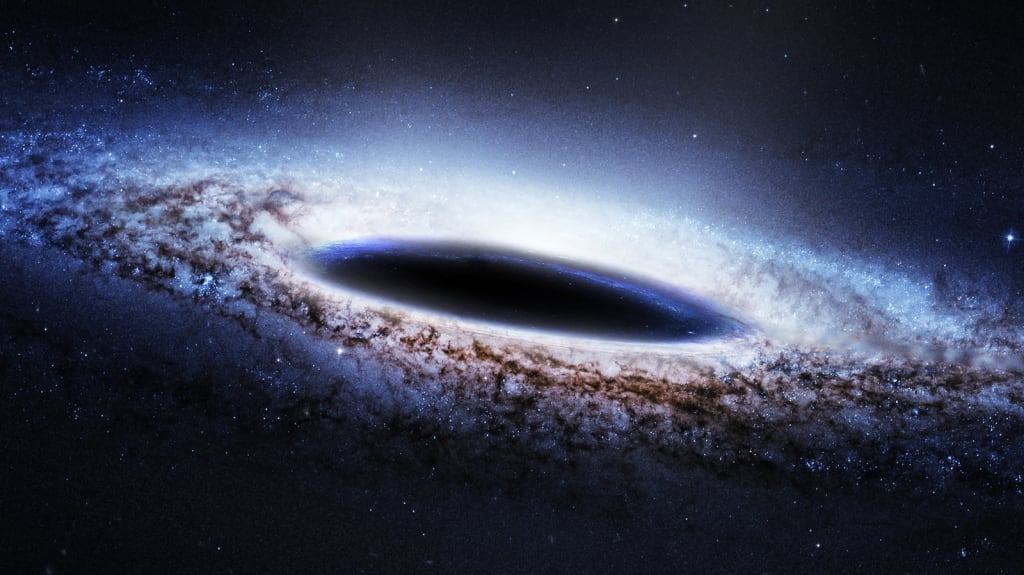The Secrets of Black Holes
Insights from Hawking's Legacy

Quantum Field Theory challenges the notion of empty space, revealing that it's not truly vacant but filled with tiny vibrations capable of transforming into virtual particles. These particles, with sufficient energy, can give birth to low-energy light packets known as photons. This article delves into the intriguing world of black holes, their enigmatic event horizons, and the groundbreaking ideas put forth by the legendary physicist Stephen Hawking.
At the heart of every black hole lies its event horizon—a point of no return, where even light succumbs to an overwhelmingly potent gravitational force. Black holes sustain themselves by devouring gas and stars in their vicinity, often surrounded by a luminous accretion disk. As matter approaches the event horizon, it accelerates, generating the brilliant glow of the accretion disk and outlining the black hole's shadow. This distortion of space and time aligns with Einstein's theory of general relativity.
Nearly half a century ago, Stephen Hawking introduced the concept of Hawking radiation, positing that those particles escaping from a black hole steal some of its energy. Over time, this energy loss leads to the eventual disappearance of the black hole. According to Hawking, black holes emit thermal energy or heat, a revelation that sparked the perplexing Hawking information paradox. Quantum mechanics suggests that information cannot be destroyed, yet Hawking's theory seemed to contradict this fundamental principle. To reconcile this paradox, Hawking proposed that the lost information is stored in a cloud of zero-energy particles around the black hole, which he termed "soft hair."
Recent research offers a potential resolution to the Hawking information paradox by suggesting that Hawking radiation might contain non-thermal information. This information could unveil crucial details about a black hole's history, its stellar origins, and other long-thought-lost attributes. Essentially, it could be a cryptic message from the depths of a black hole, disclosing its enigmatic past.
Hawking's theory extends beyond black holes; it implies that any massive object could emit Hawking-like radiation. Researchers explored this concept using the Schwinger effect, revealing that this radiation could manifest in environments with varying levels of gravity, not limited to black holes. This leads to a thought-provoking notion that all massive objects in the universe, from stars to planets, may gradually lose their energy in a manner akin to black holes. The result? Everything in the universe, including stars, planets, and black holes, shares a common destiny—a gradual fade into oblivion as they emit particles of light. While this concept may seem disconcerting, it unfolds over a timescale far exceeding the current age of the universe, rendering black holes virtually eternal in our temporal measurements.
Hawking's exploration also delved into primordial black holes, proposing that these entities, ranging from minuscule to massive, could be candidates for the elusive dark matter—mysterious matter that silently populates the universe, invisible to our direct observation. Hawking's curiosity extended to the concept of the Multiverse, challenging the notion of an infinite array of universes by proposing a finite number. Furthermore, he ventured into the tantalizing realm of time travel, where equations suggest the possibility of closed time-like curves, enabling backward journeys through time. Yet, the prospect of time travel is not without its complications and paradoxes, as Hawking elucidated through his "chronology protection conjecture."
In his later years, Stephen Hawking contemplated the future of humanity, addressing diverse scenarios, from the Higgs boson triggering cataclysmic events to the possibility of extraterrestrial encounters and the rise of sentient AI. Some of these speculations have materialized, while others remain subjects of curiosity, awaiting the test of time. In essence, the legacy of Stephen Hawking continues to inspire and challenge our understanding of the cosmos, leaving us with profound questions and tantalizing possibilities to explore.
About the Creator
Nor-An Rose Aren
she dreams of becoming a writer, and now she's starting to live her dream.






Comments (1)
I used to live in a black hole! Amazing work! Great job!